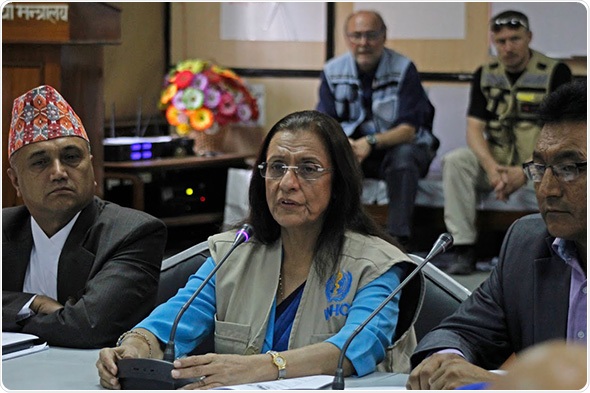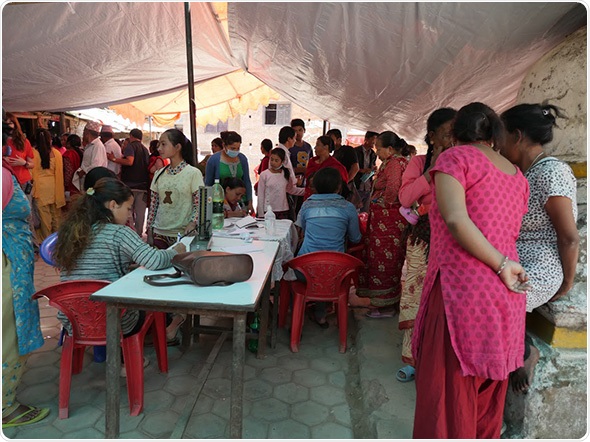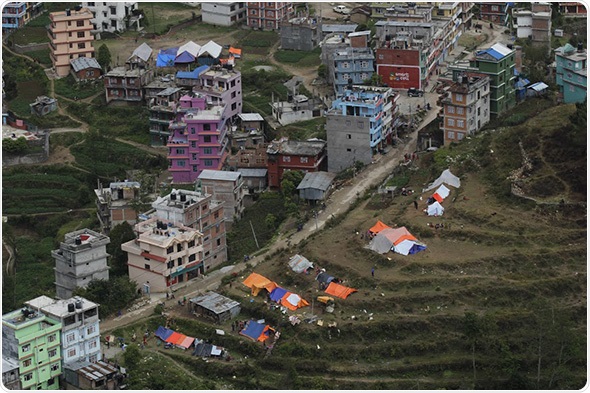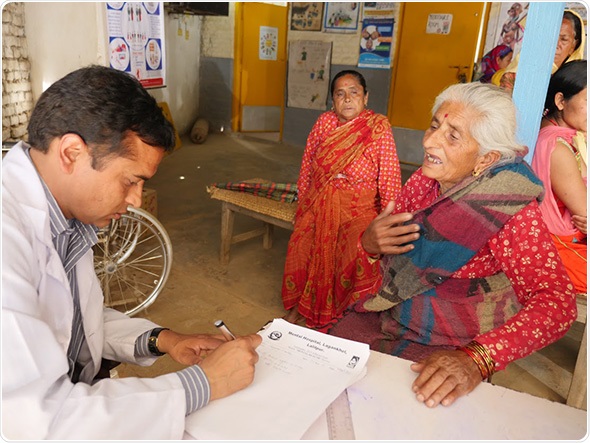The World Health Organization is committed to supporting Nepal’s health system to deliver life-saving and essential services to its people and build back resilient health facilities that will be safe in emergencies, affirmed Dr Poonam Khetrapal Singh, World Health Organization (WHO) Regional Director for South-East Asia, today.

“WHO stands with the Government of Nepal as it strives to overcome this crisis,” Dr Singh said during a visit today to Kathmandu. “I am moved by the terrible human impact of the devastating earthquake and truly impressed by the resilience of the people of Nepal to respond so bravely and effectively in the days following the earthquake.”

WHO has allotted over US$ 1.1 million for the emergency operations in Nepal. US$ 175 000 was released within hours of the earthquake from the South-East Asia Regional Health Emergency Fund to meet immediate financial needs and fill critical gaps in the aftermath of the 25 April disaster. WHO has 20 emergency response staff in Nepal and is sending medicines and other health supplies to treat tens of thousands of people.
More than 50 000 patients have been treated in hospitals in the 14 districts most affected by the earthquake as of 5 May.

During her visit to Nepal, Dr Khetrapal Singh met with the country’s Minister of Health and Population and other senior government officials, as well as the leadership of the United Nations system in the country. High on her agenda were preparations to prevent disease outbreaks ahead of the oncoming rainy season, WHO’s commitment to support the country’s health system, and to assist its heroic health workers as they recover from the disaster once the emergency phase has passed.
Numerous governments are supporting WHO through financial contributions, medical supplies and deployments of emergency health professionals to the WHO-Ministry of Health Foreign Medical Team response.

Dr Singh stressed, however, that more must be done to protect the health of Nepal’s people. This included ramping up Nepal’s disease outbreak surveillance and response system, providing large quantities of necessary medical supplies, and supporting the recovery of the health system, parts of which were shattered by the disaster.
Dr Singh said:
We are very concerned about the increased risk of communicable diseases, including diarrhoea, in areas where hygiene and sanitation systems are disrupted
We have a four-week window to preposition medical supplies in affected districts and strengthen the country’s water, sanitation and hygiene systems so as to shield it against the threat of disease outbreaks. These include water-borne and vector-borne diseases such as dengue and malaria, along with acute respiratory infections
“WHO will continue working with UN partners, governments and non-governmental organizations to ensure the health of the affected people living in these harsh conditions is protected,” Dr Singh added.
Nepal’s disease outbreak early warning and response system is now in place and is being supported by WHO, which has trained staff working all the affected districts in support of their Nepalese government counterparts.
Ten hospitals were completely or partly damaged in the earthquake, along with more than 600 smaller facilities, predominantly village health posts, which supply basic medicines and other routine services in remote communities outside the Kathmandu Valley. However, thanks to the emergency response plan, which included retrofitting of Kathmandu hospitals and ensured that they withstand and continue functioning in the aftermath of earthquake.